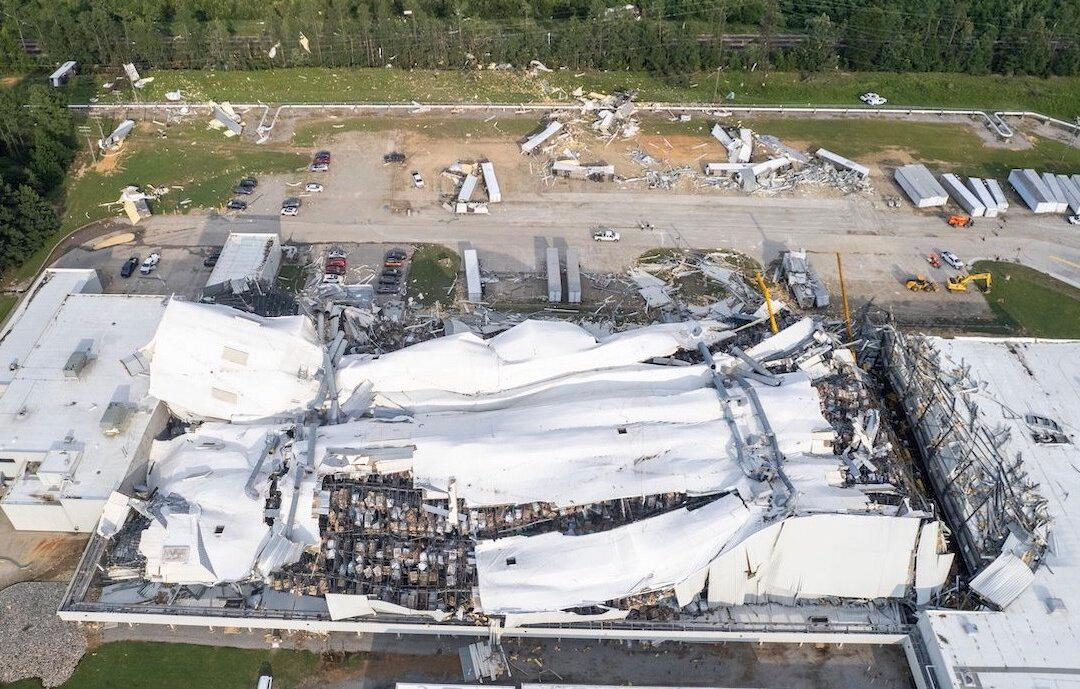Health officials said that the tornado-caused damage to a Pfizer plant in North Carolina could cause future drug shortages in the United States.
On Wednesday, the Pfizer facility in Rocky Mount appeared to sustain a direct hit from what National Weather Service officials say was an EF-3 tornado, halting operations at the plant. The company has said that the plant makes about 25 percent of the firm’s sterile injection medicines that are used in U.S. hospitals.





